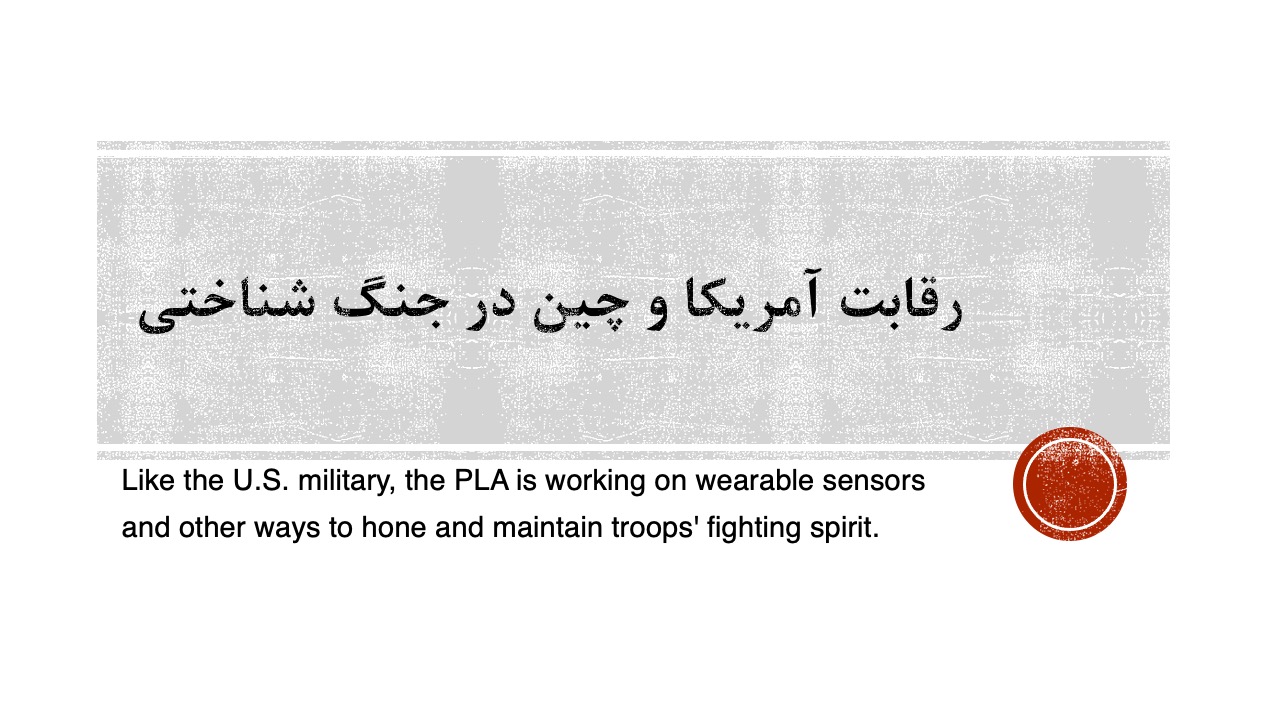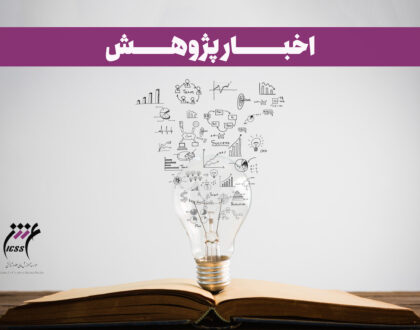Cognitive warfare

China Gears Up for Cognitive Warfare
Like the U.S. military, the PLA is working on wearable sensors and other ways to hone and maintain troops’ fighting spirit.
By Josh Baughman and Peter W. Singer
April 7, 2023
China’s military is increasingly at work on wearable technology and a dedicated psychological support system to win at what it views as the crucial space of cognitive warfare—manipulating enemy troops’ state of mind to shape their behavior and hardening its own forces against such efforts.
“In future cognitive domain operations, the influence of rational factors such as science and logic on individual cognition is likely to be weakened, and cognitive confrontation may become a contest of emotions,” says one recent article in PLA Daily. “The rapid development of intelligent technology is changing the logic of information dissemination in an all-round way, making the impact of information on thinking and consciousness more profound and comprehensive, and human brain cognition has truly risen to an important field of military confrontation.”
Cognitive domain operations seek to capture the mind of one’s foes, changing the thoughts and perceptions of an adversary to shape their decisions and actions. As another People’s Liberation Army outlet describes, a cognitive attack aims to “use an “invisible hand” to control the opponent’s will, making the opponent feel “I can’t” and “I dare not,” and then achieve the effect of “I don’t want to.”
Given such perceived stakes, PLA media is also more and more concerned with warding off such attacks and steeling their forces’ will in the mental aspects of war.. In “Cultivate a Good Combat Psychology,” the authors write, “War is not only a material contest, but also a spiritual contest. People are always the decisive factor in the outcome of a war, and the effective functioning of people depends on the support of a good psychological situation and stable psychological quality.”Training for mental resolve, they write, can help ward off sensory disorders and other problems that can hurt judgment and decision-making. Training environments must “improve the psychological adaptation, stability, and endurance of officers and soldiers on the battlefield.” In line with an ideological theme that cuts through much of PLA writing, they say such training can help troops cultivate “revolutionary heroism” that acts as a “spiritual sword” to overwhelm and defeat enemies.
Because the mental state has been elevated to high importance in the PLA, technical means are being turned to in growing effort to improve wartime psychological assessment, early warning, and intervention as needed. In a growing number of PLA units, each soldier is being given smart sensor bracelets, which PLA Daily reports can provide “physiological data in real time, and promptly dispatches a psychological counselor to carry out psychological counseling.” The bracelets are part of what the PLA has dubbed their Intelligent Psychological Monitoring System (智能心理监测系统), which reportedly allows each unit to “continuously record the facial information of officers and soldiers,
judge the psychological state of officers and soldiers in real time through data feedback, and archive them.”
The PLA is also expanding use of high-stress virtual-reality simulations to make officers and soldiers feel like they are in actual combat. The value of VR also lies in how the data collected during such training sessions can then be used in the future, to better prepare other soldiers for combat.
On the lower-tech side, the PLA has built “anti-stress training halls, psychological behavior training fields, and group stress-training halls,” all designed to act as “a spiritual station for officers and soldiers to provide psychological consultation, emotional release, and physical and mental adjustment.”
Of course, the U.S. military is working on its own technology-fueled efforts to assess and shape American troops’ mental state. In 2020, the Defense Innovation Unit helped equip some 8,500 soldiers with a Garmin watch and Oura Ring to gather data from 165 biomarkers to monitor health and provide predictive analytics. More recently, U.S. Air Force researchers are asking industry to develop wearable computers and sensors to detect and counter fatigue and stress among warfighters, doctors, nurses, and first-responders. The initiative “seeks to develop wearable systems that continuously monitor biometrics of fatigue and stress using electrophysiological sensors and biomarkers of stress such as cortisol, DHEA-s, epinephrine, and NPY in interstitial fluid (ISF).”
The U.S. Army is similarly working on developing wearable biofeedback devices, announcing various pilot contracts to “leverage new and innovative wearable technologies and capabilities to enhance Soldier operational readiness and sustainability.” According to Michael Baum, Branch Chief of the Combat Capabilities Development Command Aviation and Missile Center, “The Army is hoping that some of the data taken from these biofeedback devices will help the service design more effective training scenarios as part of its synthetic training environment, an effort to create realistic training simulations using gaming technology.”
The stakes of this competition in the cognitive domain may be high indeed. As one researcher from China’s Academy of Military Sciences wrote last year: “Military confrontation, on the surface, is a confrontation between the hard powers of the two sides, but at a deeper level, no matter what the nature of the war and the purpose, it is ultimately a contest of human will.”
Josh Baughman is an Analyst at China Aerospace Studies Institute, Air University. P.W. Singer is senior fellow and strategist at New America.
Opinions, conclusions, and recommendations expressed or implied within are solely those of the author(s) and do not necessarily represent the views of the Air University, the Department of the Air Force, the Department of Defense, or any other U.S. government agency. Cleared for public release: distribution unlimited.
مطالب مرتبط

نشست دفاع از پایان نامه
۳ / مهر / ۱۴۰۳

انتشار نسخه جدید فصلنامه تازههای علوم شناختی: دوره ۲۵، شماره ۲
۱۵ / آبان / ۱۴۰۲


